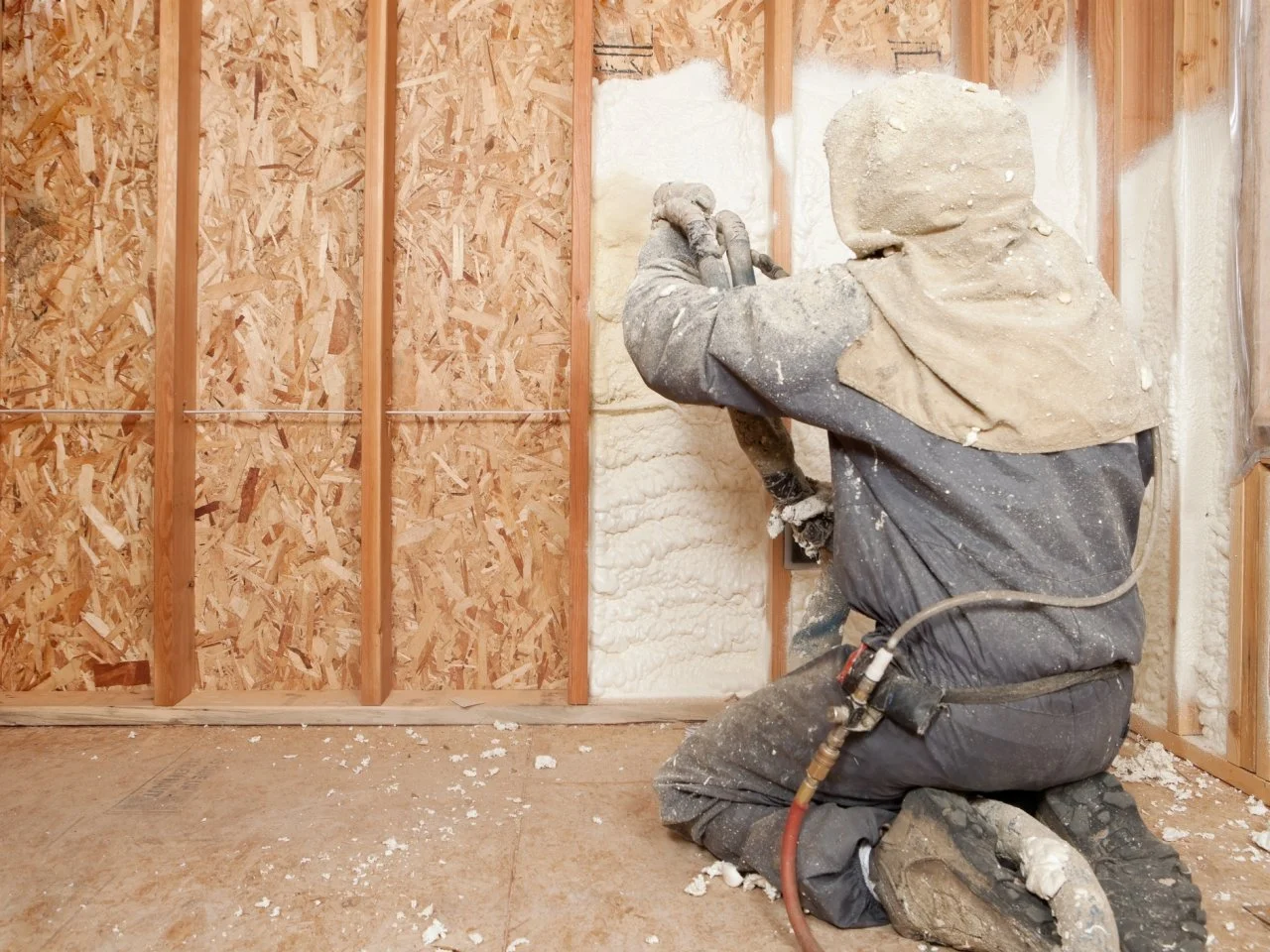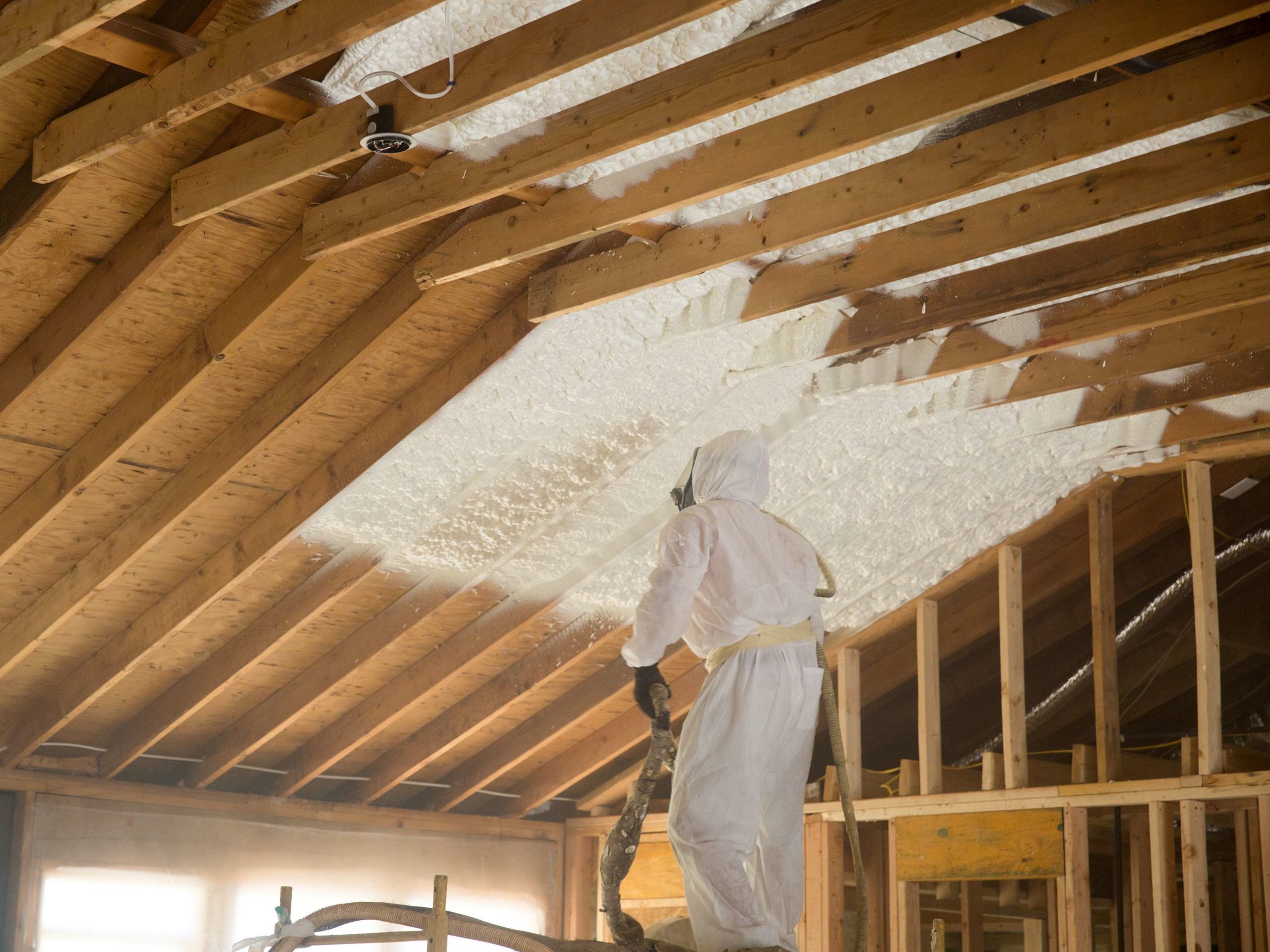Leading Reasons to Choose Spray Foam for Your Following Insulation Project
When thinking about insulation choices for your next job, spray foam stands out due to its remarkable efficiency characteristics and effectiveness advantages. As you evaluate your choices, checking out the flexible applications and long-term advantages of spray foam might disclose compelling factors to include it right into your insulation method.
Superior Insulation Performance

The high R-value of spray foam, which measures its thermal resistance, is an additional key benefit. Closed-cell spray foam, for example, can attain an R-value of approximately 6.5 per inch, considerably surpassing fiberglass batts and cellulose. Spray foam insulation develops an airtight seal, which decreases thermal connecting and decreases the possibility for mold and mildew development due to moisture accumulation.

Power Performance Perks
The energy efficiency advantages of spray foam insulation are significant, more enhancing its allure as a top selection for developing insulation. Spray foam increases upon application, producing an airtight seal that lessens air leaks, which is a typical resource of energy loss in typical insulation materials.
In addition, spray foam insulation boasts a high R-value per inch, which suggests it provides extra thermal resistance in less area contrasted to options like fiberglass or cellulose (Spray Foam). This performance not only adds to prompt energy cost savings but likewise advertises long-term sustainability by minimizing the total energy usage of a structure
Furthermore, the application of spray foam can certify property owners for power efficiency rewards and tax obligation credit reports, including financial benefits to its energy-saving abilities. In a period where energy conservation is vital, picking spray foam insulation not just enhances comfort however likewise aligns with eco accountable techniques, making it a sensible choice for both industrial and property projects.
Dampness and Mold And Mildew Resistance
Provided its unique structure and application approach, spray foam insulation uses extraordinary dampness and mold resistance, making it an optimal option for different environments. The closed-cell structure of spray foam creates a solid barrier that efficiently seals potential moisture ingress, thereby decreasing the possibility of mold growth. Unlike traditional insulation products, which can soak up water and give a reproduction ground for mold and mildew, spray foam stays unsusceptible moisture, enhancing the overall wellness of the interior atmosphere.
Furthermore, the application process of spray foam involves increasing and loading spaces and cracks, making sure a tight seal that reduces air leakages. This particular not only improves power effectiveness but also aids control humidity levels within the room. Appropriate humidity control is critical for stopping mold and mold, making spray foam insulation especially beneficial in locations susceptible to dampness, such as cellars and crawl rooms.
In enhancement to its moisture-resistant residential properties, spray foam is likewise inherently immune to mold development. This characteristic makes certain that buildings and homes stay safe and healthy and balanced over time, giving peace of mind to home owners and building supervisors alike.
Long-Term Cost Financial Savings
Purchasing spray foam insulation yields substantial long-lasting price financial savings, primarily with enhanced power performance. Unlike conventional insulation products, spray foam produces an impermeable seal that minimizes air leak. This decrease in drafts leads to reduce home heating and cooling expenses, as HVAC systems do not have to function as tough to maintain comfortable interior temperature levels.
Additionally, the premium insulating residential properties of spray foam mean that homes remain constantly comfy year-round, reducing reliance on energy-consuming home appliances. Gradually, these financial savings can accumulate, leading to an obvious decline in energy costs.
Additionally, spray foam insulation contributes to the durability of your home's structure by stopping dampness buildup and mold and mildew development, which can bring about pricey repairs. With its resilience and resistance to working out, spray foam preserves its efficiency throughout the years, making sure that the preliminary investment remains to pay off.
Fundamentally, choosing spray foam insulation not only enhances your home's power performance yet additionally equates into significant long-term financial advantages, making it a sensible financial investment for house owners wanting to decrease costs while boosting convenience and sustainability.
Versatile Application Choices
Various application options make spray foam insulation a very functional selection for a variety of structure jobs (Spray Foam). This versatility allows it to be effectively made use of in property, commercial, and industrial setups, accommodating diverse insulation needs
Spray foam can be used in attic rooms, walls, creep areas, and even roof coverings, supplying seamless insurance coverage that removes spaces and gaps where air leakages typically occur. Its capability to expand upon application makes certain a tight seal, which is important for power efficiency and dampness control.
Furthermore, spray foam insulation is available in various formulations, including open-cell and closed-cell kinds, enabling for customized services based upon particular task requirements. Open-cell foam is lighter and far better suited for soundproofing, while closed-cell foam uses superior insulation and architectural integrity, making it optimal for locations subjected to description dampness.
In addition, spray foam can be applied in hard-to-reach rooms, enhancing its viability for retrofitting existing frameworks. With the capability to comply with numerous substrates, including steel, concrete, and timber, spray foam insulation stands out as a flexible choice that fulfills the demands of contemporary structure techniques.
Conclusion
In verdict, spray foam insulation arises as a remarkable choice for insulation projects due to its exceptional thermal resistance, power effectiveness, and ability to develop closed seals that avoid moisture and mold and mildew growth. Picking spray foam insulation makes sure an extensive solution that fulfills the demands of modern-day building and energy performance standards.
When it click to read more comes to attaining ideal power effectiveness in domestic and business buildings, spray foam insulation stands out for its premium insulation efficiency.The power effectiveness advantages of spray foam insulation are considerable, more improving its allure as a top selection for building insulation.Investing in spray foam insulation returns substantial long-term cost savings, mainly via boosted energy effectiveness.In final thought, spray foam insulation arises as a remarkable option for insulation jobs due to its exceptional thermal resistance, power efficiency, and capacity to produce airtight seals that protect against wetness visit the website and mold growth. Choosing spray foam insulation makes certain an extensive option that fulfills the demands of contemporary building and construction and power efficiency criteria.